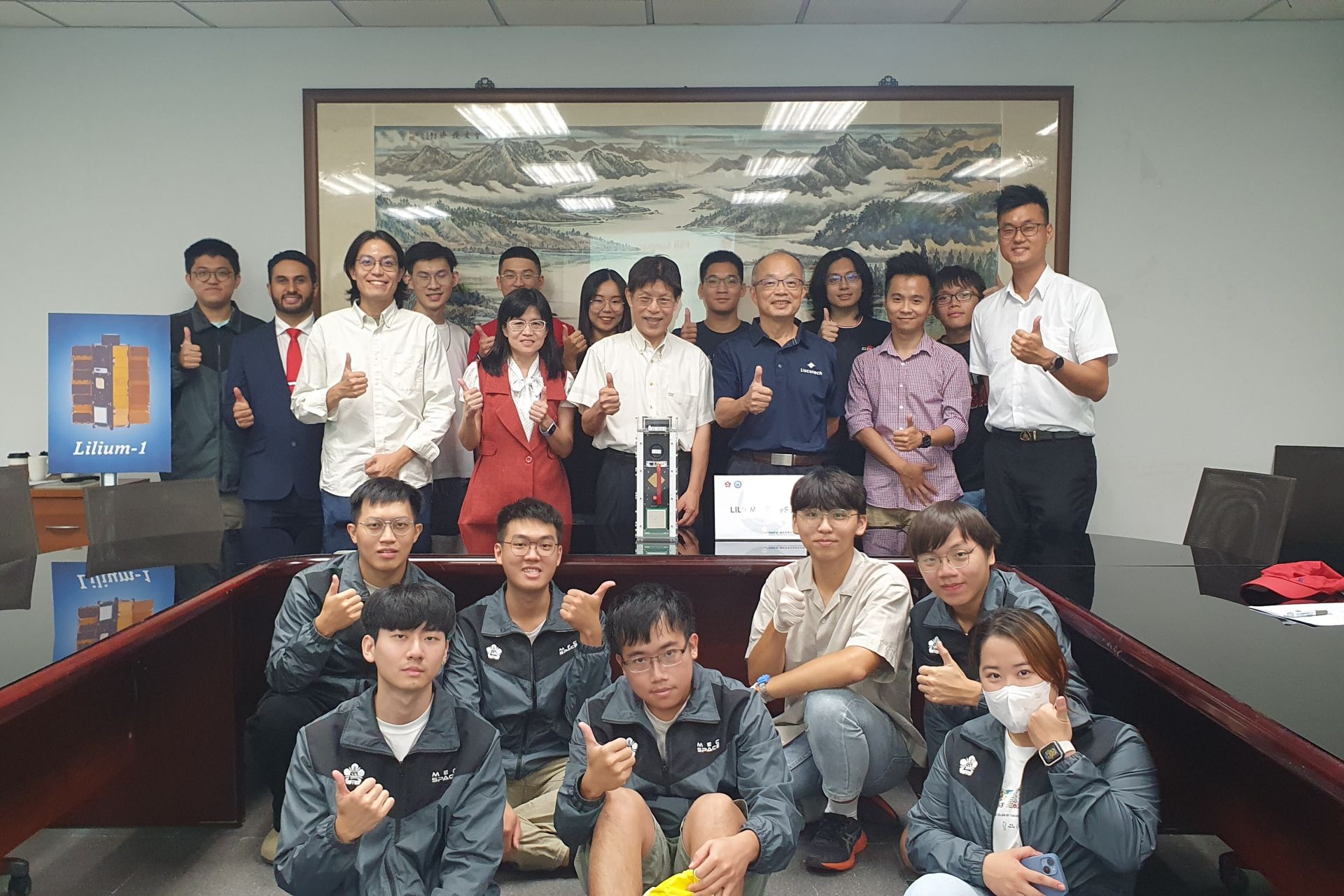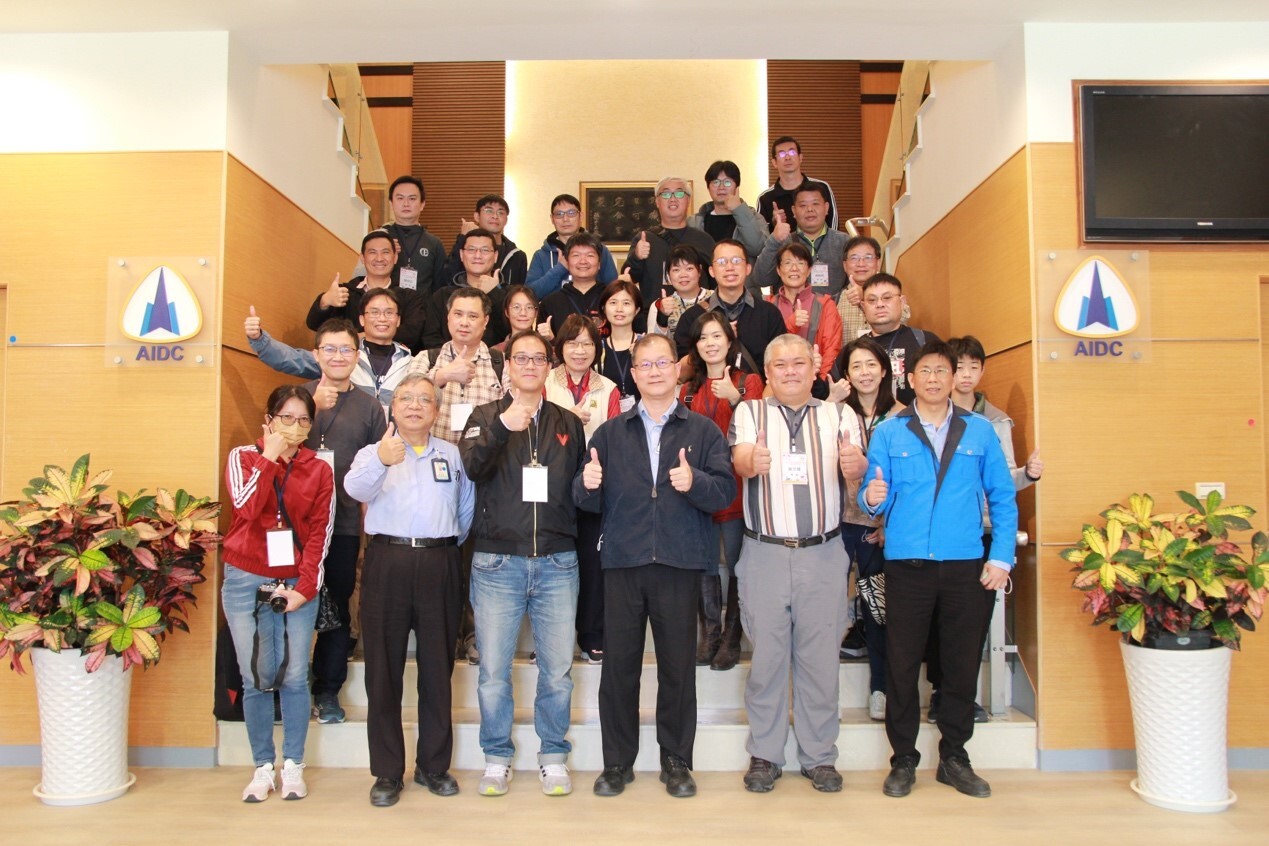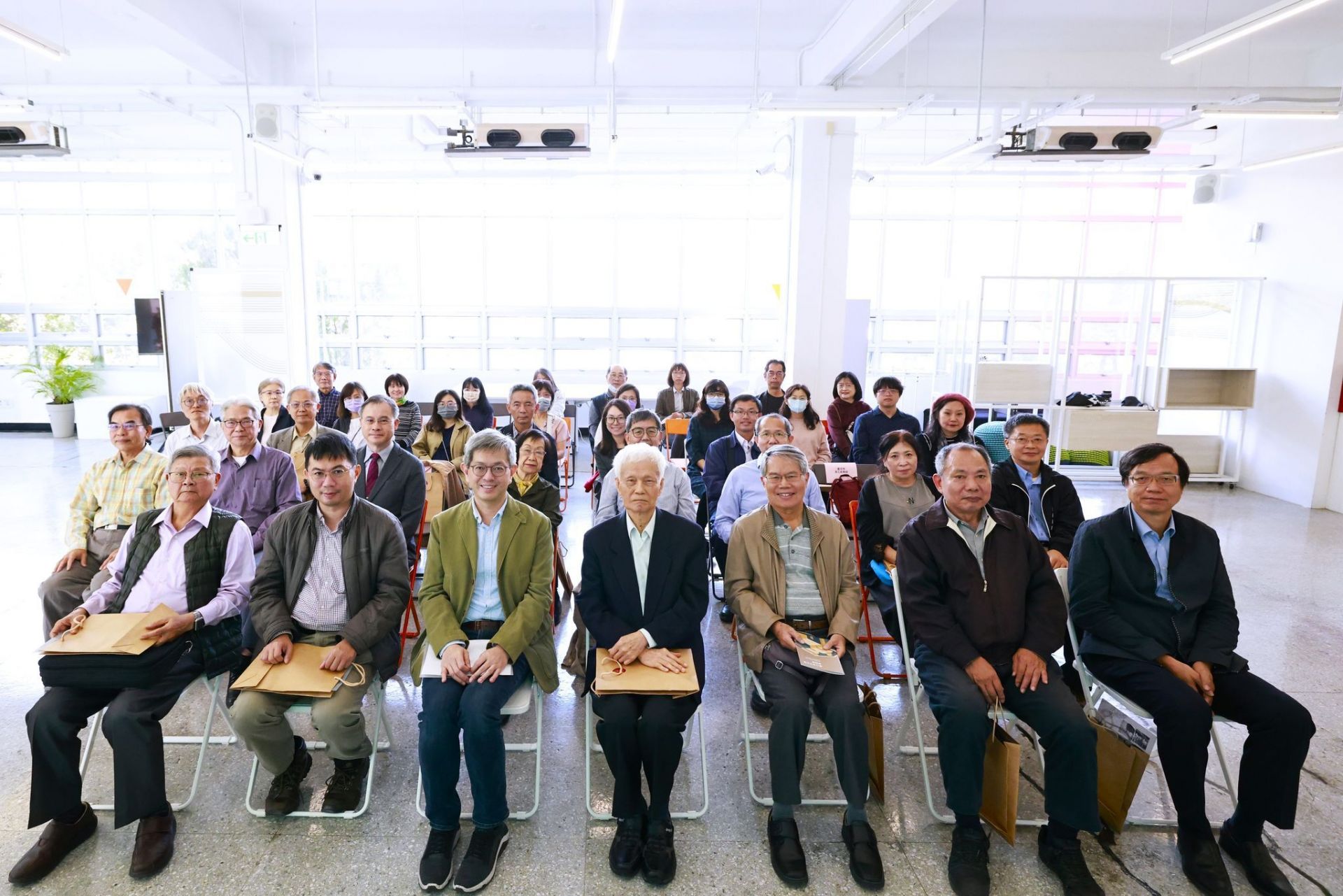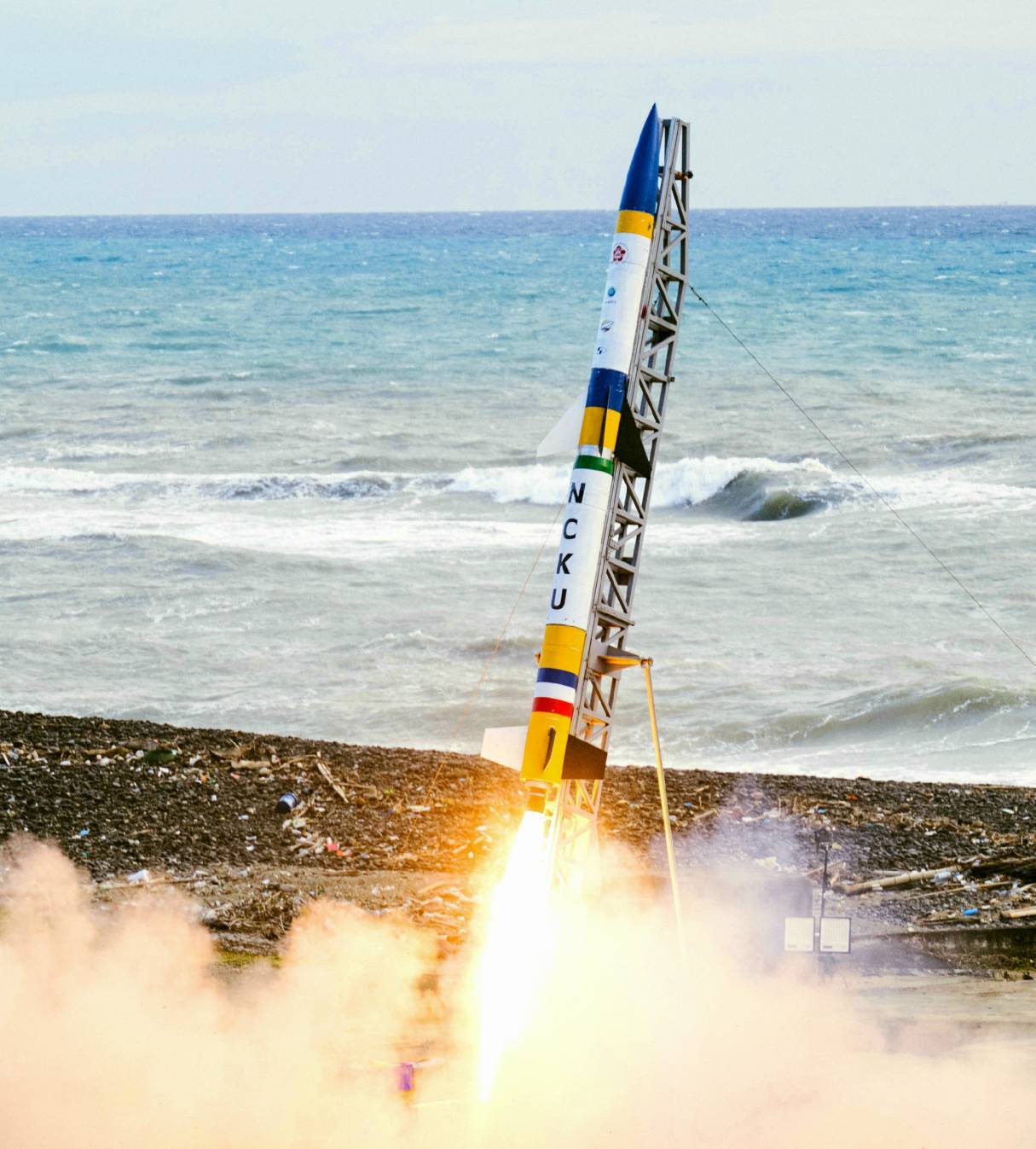National Cheng Kung University (NCKU) Professor Jyh-Chin Juang's team has integrated the resources from academia and industry in Taiwan to complete the design, production, integration, testing, and submission of Taiwan's Lilium-1 CubeSat. This satellite was successfully launched into a 520-kilometer low Earth orbit from Vandenberg Space Force Base in California, USA, using a SpaceX rocket on December 2nd at 2:19 AM this year. At 10:30 AM on December 2nd, when the satellite passed over Taiwan for the first time, the NCKU team used their independently developed ground station to receive and decode signals from the Lilium-1 CubeSat. The team continues to operate the satellite, confirming its good health status. Lilium-1 CubeSat is the first satellite funded by the CubeSat Key Technology Development Project, and its name embodies the native, tenacious, and blossoming characteristics of the Taiwan Lily.
The Lilium-1 satellite is a 3U CubeSat weighing four kilograms, with dimensions of 10 cm × 10 cm × 30 cm. Its mission includes real-time imaging and space-based Internet of Things (IoT) services. While conventional satellite imaging emphasizes ground resolution, the need for temporal resolution has become another important criterion with the widespread application of satellites and the demand for emergency response. The Lilium-1 CubeSat integrates satellite navigation positioning, attitude control, optical imaging, onboard data processing, and high-rate communication functions, establishing the potential for emergency response applications. When the satellite passes over Taiwan, commands can be sent to the ground station for imaging, and images can be transmitted to the processing center in near real-time, completing the imaging and transmission functions within minutes. The Lilium-1 CubeSat also carries an IoT payload, enabling message exchange or reporting by transmitting messages from remote areas or the sea using mobile ground terminals, which are then relayed to ground stations via the satellite. The modular design of the Lilium-1 IoT ground terminal, coupled with a user-friendly interface, allows for configuration based on needs and missions.
The Lilium-1 satellite is the first satellite funded by the National Science Council's CubeSat Key Technology Development Project. The goal of this mission-oriented project is to deploy CubeSats into low Earth orbit for the verification of key technologies. The NCKU team, through the execution of the "CubeSat System Engineering and Key Communication Telemetry and Propulsion Technology Research and Development" project, successfully integrated the resources of National Taiwan University, National Taiwan University of Science and Technology, and Tamkang University, as well as collaborated with nearly ten industry and corporate partners to tackle key technologies using systems engineering methods and conduct on-orbit verification through integrated flight testing. In addition to Lilium-1, Lilium-2 and Lilium-3 are planned to be launched in 2025 to verify system integration, satellite high-frequency communication, inter-satellite communication, intelligent telemetry, space propulsion, deployment mechanisms, and satellite collision/avoidance functions. The technologies included in the Lilium-1 satellite, such as system integration, satellite communication, and intelligent telemetry, will be further refined in Lilium-2 and Lilium-3. The successful development of this series of satellites not only meets the objectives of the National Science Council project but also serves as a pioneering experiment for the development of low-orbit communication satellites, providing a platform for testing ground terminal equipment and IoT devices.
The NCKU team launched the IRIS-A CubeSat on January 14, 2022, the IRIS-C CubeSat on April 16, 2023, and the IRIS-C2 CubeSat on November 11, 2023. With the addition of the Lilium-1 CubeSat launched this time, there are currently four satellites successfully operating in low Earth orbit simultaneously. This contributes significantly to the advancement of space technology and the cultivation of space talents.
The Lilium-1 satellite is a 3U CubeSat weighing four kilograms, with dimensions of 10 cm × 10 cm × 30 cm. Its mission includes real-time imaging and space-based Internet of Things (IoT) services. While conventional satellite imaging emphasizes ground resolution, the need for temporal resolution has become another important criterion with the widespread application of satellites and the demand for emergency response. The Lilium-1 CubeSat integrates satellite navigation positioning, attitude control, optical imaging, onboard data processing, and high-rate communication functions, establishing the potential for emergency response applications. When the satellite passes over Taiwan, commands can be sent to the ground station for imaging, and images can be transmitted to the processing center in near real-time, completing the imaging and transmission functions within minutes. The Lilium-1 CubeSat also carries an IoT payload, enabling message exchange or reporting by transmitting messages from remote areas or the sea using mobile ground terminals, which are then relayed to ground stations via the satellite. The modular design of the Lilium-1 IoT ground terminal, coupled with a user-friendly interface, allows for configuration based on needs and missions.
The Lilium-1 satellite is the first satellite funded by the National Science Council's CubeSat Key Technology Development Project. The goal of this mission-oriented project is to deploy CubeSats into low Earth orbit for the verification of key technologies. The NCKU team, through the execution of the "CubeSat System Engineering and Key Communication Telemetry and Propulsion Technology Research and Development" project, successfully integrated the resources of National Taiwan University, National Taiwan University of Science and Technology, and Tamkang University, as well as collaborated with nearly ten industry and corporate partners to tackle key technologies using systems engineering methods and conduct on-orbit verification through integrated flight testing. In addition to Lilium-1, Lilium-2 and Lilium-3 are planned to be launched in 2025 to verify system integration, satellite high-frequency communication, inter-satellite communication, intelligent telemetry, space propulsion, deployment mechanisms, and satellite collision/avoidance functions. The technologies included in the Lilium-1 satellite, such as system integration, satellite communication, and intelligent telemetry, will be further refined in Lilium-2 and Lilium-3. The successful development of this series of satellites not only meets the objectives of the National Science Council project but also serves as a pioneering experiment for the development of low-orbit communication satellites, providing a platform for testing ground terminal equipment and IoT devices.
The NCKU team launched the IRIS-A CubeSat on January 14, 2022, the IRIS-C CubeSat on April 16, 2023, and the IRIS-C2 CubeSat on November 11, 2023. With the addition of the Lilium-1 CubeSat launched this time, there are currently four satellites successfully operating in low Earth orbit simultaneously. This contributes significantly to the advancement of space technology and the cultivation of space talents.
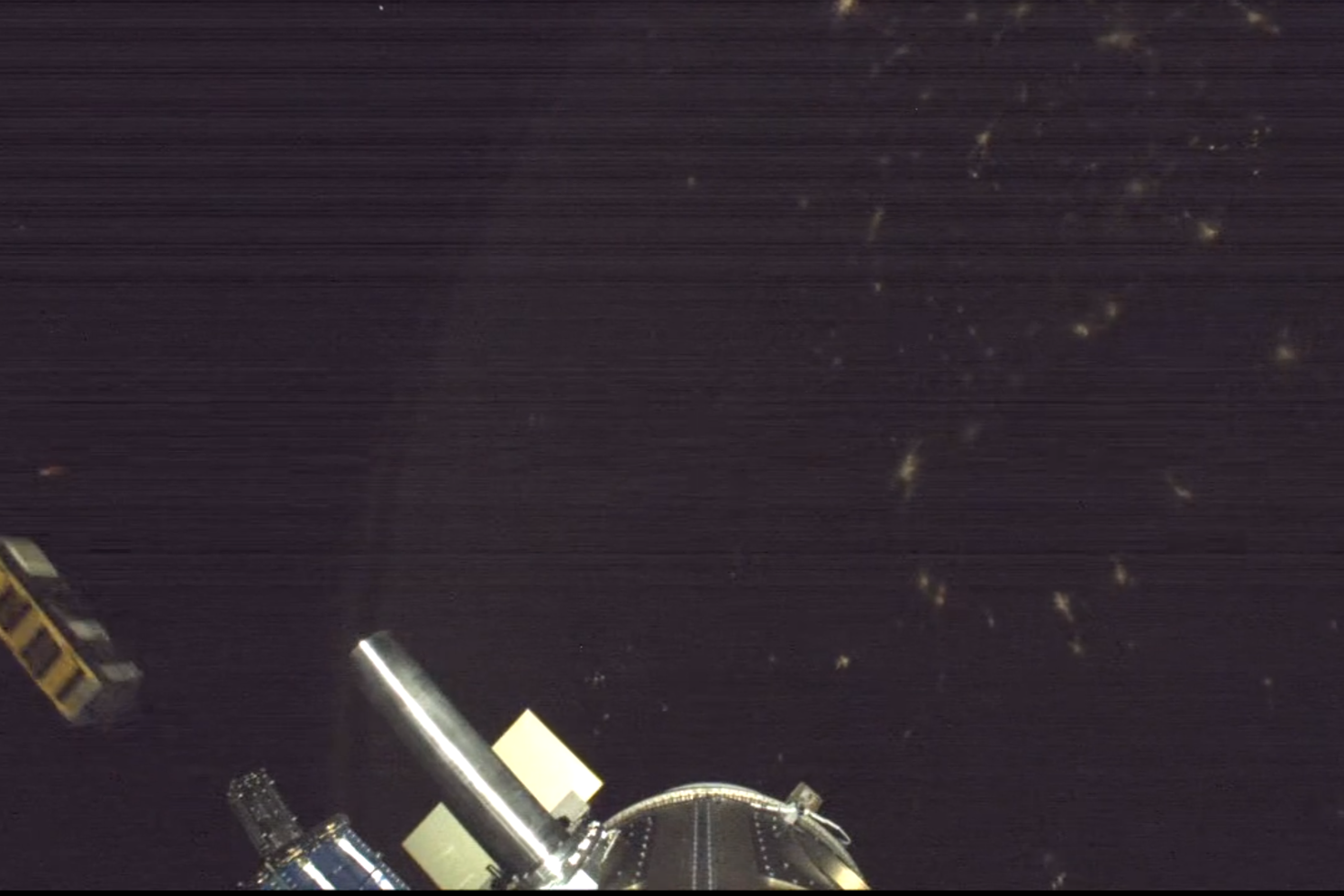
The satellite was launched into low Earth orbit by a rocket.
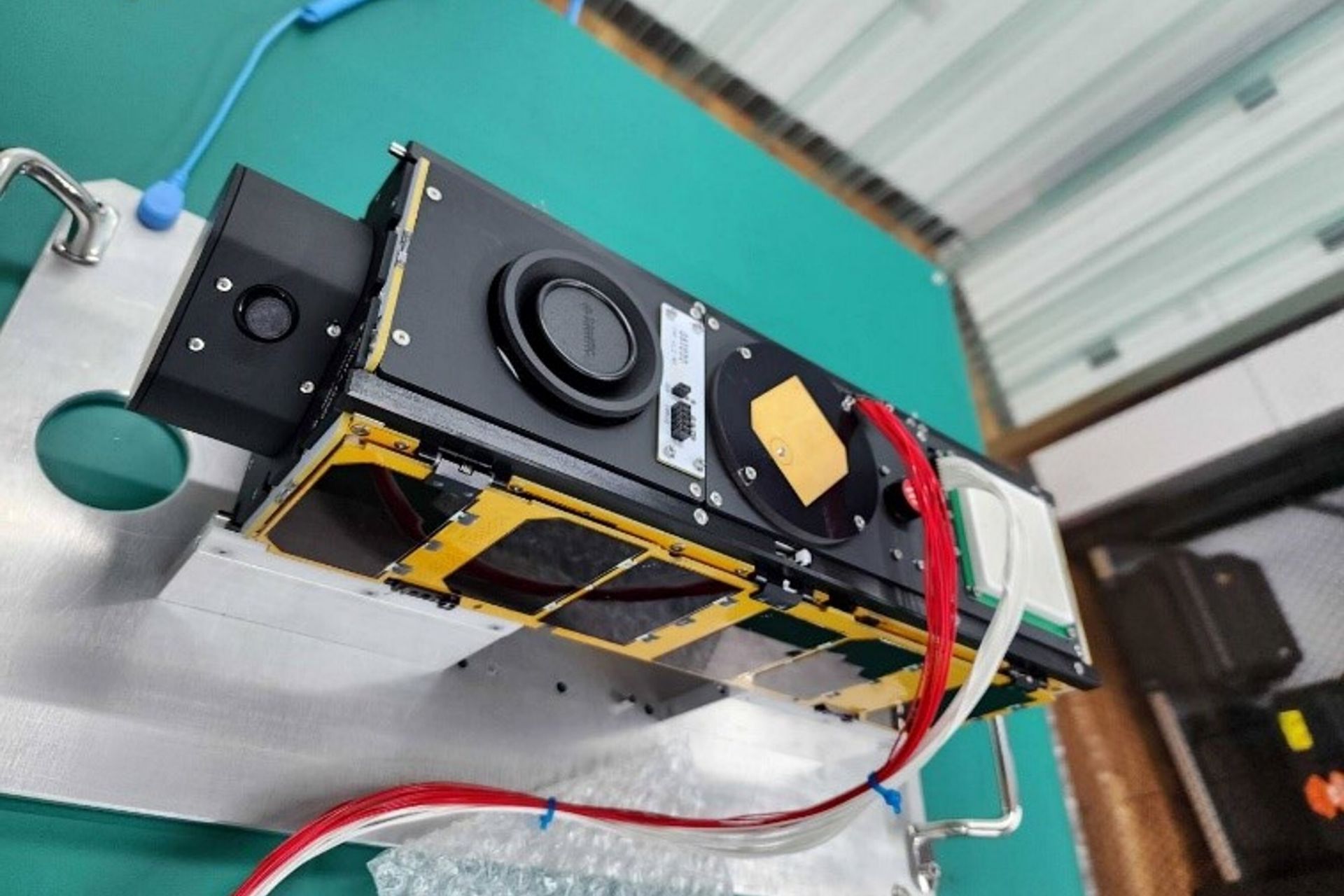
Photos of the satellite on the testing platform.

